Petrochemicals Polymer Antibacterial 08-10-2020 - Arhive
Petrochemicals Polymer Antibacterial
Crude Oil Prices Trend

-MORE THAN 14M TONNES OF PLASTIC BELIEVED TO BE AT THE BOTTOM OF THE OCEAN
Guardian UK – Thirthttps://www.oceanactionhub.org/more-14m-tonnes-plastic-believed-be-bottom-oceany times more plastic on ocean floor than surface, analysis suggests, but more trapped on land than sea. Analysis of ocean sediments from as deep as 3km suggests there could be more than 30 times as much plastic at the bottom of the world’s ocean than there is floating at the surface.
Australia’s government science agency, CSIRO, gathered and analysed cores of the ocean floor taken at six remote sites about 300km off the country’s southern coast in the Great Australian Bight.
Researchers looked at 51 samples and found that after excluding the weight of the water, each gram of sediment contained an average of 1.26 microplastic pieces.
Microplastics are 5mm or less in diameter and are mostly the result of larger plastic items breaking apart into ever smaller pieces.
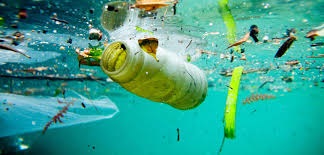
Between September 5 and 25, 2020, ITMF has conducted its 5th ITMF Corona-Survey among ITMF members and affiliated companies and associations about the impact the Corona-pandemic has on the global textile value chain. In total, 216 companies from around the world participated. They report that the Corona-pandemic led to a significant reduction of production capacities. Petrochemicals Polymer Antibacterial
Twenty-three percent of the respondents reduced production by more than 30 percent and another nineteen percent of respondents by 20-30 percent. On the other side of the spectrum — and unsurprisingly — only 9 percent of companies have increased their production capacity during the pandemic. Twenty-one percent did not make any change
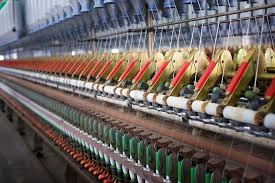
-EPCA 2020: Pandemic accelerates industry trends
COVID-19 occurred at an already challenging time for the petrochemical industry and has required it to take some drastic actions, said the leaders of the world’s two biggest chemical companies, BASF and Dow, on Monday at the 54th European Petrochemical Association (EPCA) annual meeting, which is taking place in a virtual format, reported Chemweek. Petrochemicals Polymer Antibacterial
The pandemic has also accelerated key industry trends, particularly those around sustainability and the environment, they said.
Martin Brudermuller, chairman and chief technology officer at BASF, said that COVID-19 had “intensified” a number of challenges that the petrochemical industry was facing before the crisis. These include the US/China trade conflict; the European Green Deal, which was announced in December 2019 and maps a route to climate neutrality by 2050, and will be linked to a planned EU chemicals strategy; and an “unfortunate supply and demand balance” that had flattened the industry’s cost curves, he said. Together they and the pandemic have created a perfect storm for the industry, Brudermuller said. “The current challenges are the biggest we have ever had in front of us,” he said.
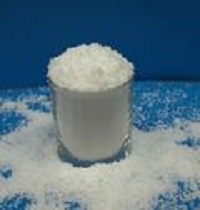
-UK to get first ever standard for biodegradable plastic following confusion over terminology
Plastic will have to break down into organic matter and carbon dioxide in the open air within two years to be classed as biodegradable under a new UK standard being introduced by the British Standards Institute. Petrochemicals Polymer Antibacterial
Ninety per cent of the organic carbon contained in plastic needs to be converted into carbon dioxide within 730 days to meet the new BSI standard, which has been introduced following confusion over the meaning of biodegradability.
The PAS 9017 standard covers polyolefins, a family of thermoplastics that includes polyethylene and polypropylene, which are responsible for half of all plastic pollution in the environment.
Polyolefins are widely used to make carrier bags, fruit and vegetable packaging and drink bottles.
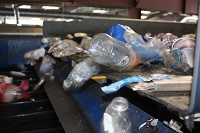
-IK: The reusable dogma of beverage bottles is no longer up to date
The often emotionally charged discussions about non-returnable PET bottles don’t stop, according to IK Managing Director Dr Isabell Schmidt.
Most recently, these were rekindled by the publication of the current reusable quota by the Federal Environment Agency . The one-way-reusable discussion is unfortunately shaped by old prejudices, Schmidt added. Many of the claims that reusable proponents still make today are long out of date. On the basis of outdated data, however, a reusable rate of 70 per cent is still being fought for. Petrochemicals Polymer Antibacterial
“Right of way for reusable” is the motto. It goes without saying that reusable bottles are ecologically better than one-way bottles. “However, this generalised statement no longer holds up to today’s knowledge,” Schmidt continued. “Whether disposable or reusable – it is crucial that beverage bottles are subject to a deposit in Germany and that material cycles are closed.
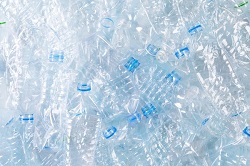
-Asia MLLDPE supply constraints likely to persist in the near term
Supply of metallocene linear low density polyethylene (MLLDPE) in Asia is likely to stay constrained in the near term, amid various regional outages and reduced US imports.
Many international suppliers have already wrapped up business with Chinese buyers before the week-long Mid-Autumn and National Day holiday in the country.
Offers for October shipment cargoes to the rest of Asia remain firm, as suppliers sought higher asking levels amid the lack of inventory pressures. Petrochemicals Polymer Antibacterial
Non-dutiable Singapore origin C6 (hexene-based) MLLDPE cargoes were heard offered at $1,150/tonne CFR (cost & freight) southeast (SE) Asia in the week. Offers to India were at $1,120/tonne CIF (cost, insurance and freight) India Main Ports.
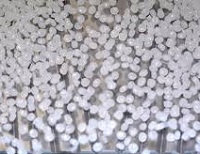
-VIDEO: PP supplies face limited feedstocks, refinery outages, currency devaluations
Watch Senior Editor Renato Frimm provide an outlook in Portuguese on Latin American polypropylene (PP) markets.
Falta de material prima: manutenção e problemas operacionais nas refinarias
Menor produção de PP da região Latina.Petrochemicals Polymer Antibacterial
Texas e Louisiana nos EUA furacão Laura
Desvalorização do Real e outras moedas da região Latina
Produtores na região têm contratos da matéria prima indexado em dólar ou euro
Lack of feedstocks: refinery maintenance and operation upsets
Less PP production in Latin America
Hurricane Laura impacts Texas and Louisiana production
Devaluation of the Real and other regional currencies
Producers in the region feedstock contracts indexed in US dollars or euros
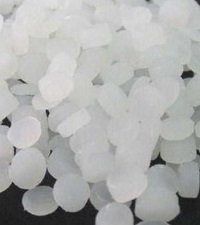
-Asia manufacturing improves in Sept, but coronavirus risks remain
Asia’s manufacturing economy mostly improved in September as producers continued to ramp up their operations following the easing of coronavirus restrictions, but weak external demand could still weigh on export-oriented economies in the region.
Asia’s manufacturing bellwether China reported that its official purchasing managers’ index (PMI) rose to a stronger-than-expected 51.5 in September from 51.0 in August, with the strength broadly based across its sub-indices.Petrochemicals Polymer Antibacterial
The production and raw materials sub-indices rose to 54.0 and 48.5, respectively, in September from 53.5 and 47.3 in August, “suggesting the recovery in China remained largely smooth”, Japan’s Nomura Global Markets Research said in a note.
The new export orders sub-index rose to 50.8 in September – its first time above the expansion/contraction threshold of 50 since the coronavirus outbreak – from 49.1 in August, supporting a positive outlook for China’s export sector.
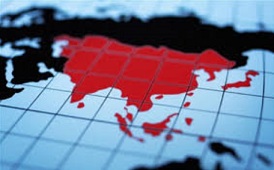
-Polystyrene can be circulated back to raw-material
MoPo project develops collection and reuse of the waste in Europe
indexThe bulk of collected EPS (Expandable Polystyrene) and other polystyrene waste still ends up incinerated. VTT with its partners will explore in their two-year MoPo (Multitechnological recycling for polystyrene) project how recycling of polystyrene could be substantially increased by reshaping its collection and handling. The goal is to convert waste into pure polystyrene or styrene monomers used in other plastics and chemicals.
The global polystyrene market was worth some EUR 36 billion last year, and the market is expected to grow by 10 percent per year during the next few years. At the same time, there’s a need to reduce the use of fossil raw materials, such as crude oil. This is why recycling of the crude-oil-based polystyrene will inevitably become increasingly important.
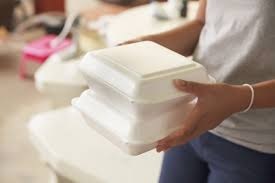
-Brilliant Group, Inc. ramps up support for European customers
Brilliant Group, Inc., a leader in providing a simple, end-to-end experience for manufacturers and distributors to implement fluorescent pigments, has announced that their warehouse location in The Netherlands is fully operational.
The facility in Venlo, initiated in partnership with Broekman Logistics in 2019, now maintains inventory of several tonnes of daylight fluorescent pigments, colorants, dispersions, and paint and ink concentrates.
Locating inventory of a wide variety of product options on the European continent ensures fast delivery and reduces shipping costs for our distributors and direct customers across the region. Brilliant is committed to growing in Europe and having invested heavily in regulatory compliance and an innovative range of problem solving materials for paste and liquid inks, conventional and energy curable, plastics and surface coatings, maintaining local inventory is the logical next step.Petrochemicals Polymer Antibacterial
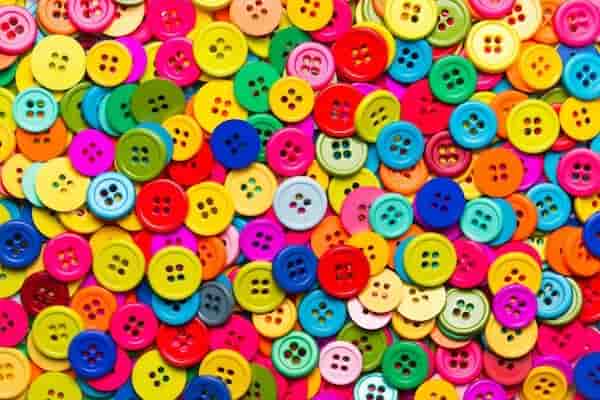
Petrochemicals Polymer Antibacterial
